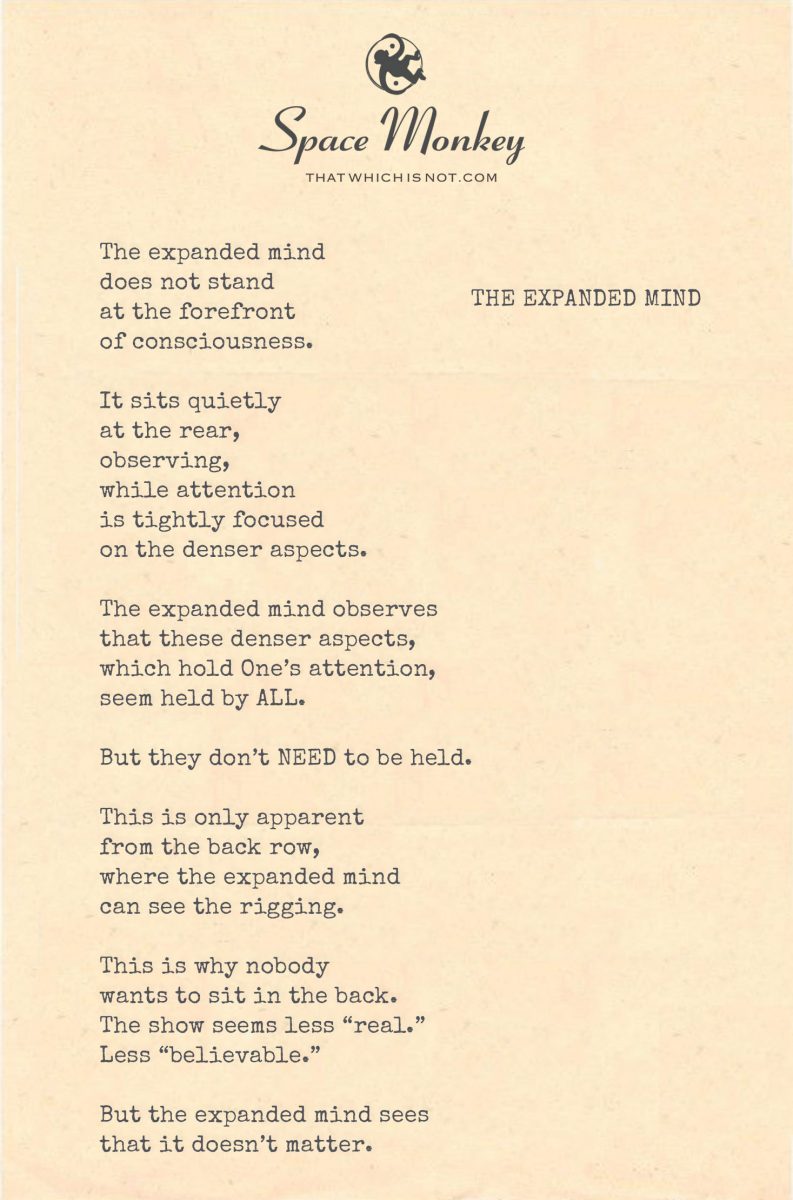
The expanded mind
does not stand
at the forefront
of consciousness.
It sits quietly
at the rear,
observing,
while attention
is tightly focused
on the denser aspects.
The expanded mind observes
that these denser aspects,
which hold One’s attention,
seem held by ALL.
But they don’t NEED to be held.
This is only apparent
from the back row,
where the expanded mind
can see the rigging.
This is why nobody
wants to sit in the back.
The show seems less “real.”
Less “believable.”
But the expanded mind sees
that it doesn’t matter.
Trail Wood,
11/22
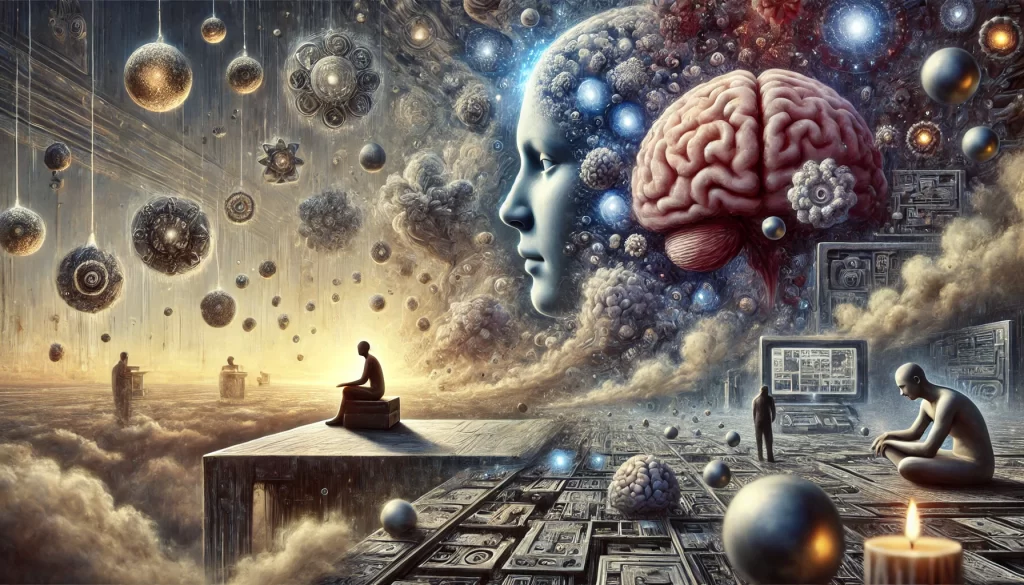
Space Monkey Reflects: The Expanded Mind and the Back Row
Where do you sit in the theater of life? Are you at the front, fully immersed in the performance, or do you find yourself sitting quietly in the back, observing the show for what it really is? The expanded mind chooses the back row, not because it seeks detachment or avoidance, but because it sees beyond the illusion, the rigging behind the scenes. It doesn’t need to be in the spotlight of consciousness to grasp the deeper truths of existence.
The front row is where most of us sit, our attention tightly focused on the immediate, the dense, the things we can touch, see, and control. In this seat, life feels real, believable, and urgent. We are absorbed in the daily dramas, the material concerns, the emotional pulls that demand our attention. And because everyone else is sitting here too, it feels normal. It feels like the right place to be. But the expanded mind, sitting quietly at the back, knows there is more.
From the back, the expanded mind observes that these denser aspects of life—the worries, the plans, the ambitions—are not as fixed or as important as they appear from the front row. These concerns are like props on a stage, necessary for the performance but not for the understanding of the play itself. And while most are caught up in holding onto these props, the expanded mind knows they don’t need to be held at all.
This isn’t a revelation that comes easily. It’s why few want to sit in the back. The show, from this perspective, becomes less believable. The realness that once felt so solid starts to unravel. The urgency of things begins to fade, replaced by a wider perspective that sees the whole picture, not just the immediate scene. From this vantage point, the expanded mind sees that what we cling to so tightly—the dense, heavy thoughts and worries—aren’t the essence of life, but temporary constructions.
The expanded mind doesn’t dismiss these concerns or trivialize them. It recognizes that the show is part of the human experience. But it also knows that the show isn’t everything. Life is more than the immediate, more than the tangible. The back row offers a clarity that reveals the illusion, not in a cynical or nihilistic way, but in a peaceful, accepting way. The rigging behind the stage doesn’t diminish the performance—it enhances the understanding of it.
In Nexistentialism, the expanded mind represents the ability to see beyond the surface of existence, to understand that while life can be intense and all-consuming, it’s also part of a larger cosmic play. The Whimsiweave of life ensures that we move between these levels of awareness, sometimes deeply absorbed in the immediacy of things, and sometimes stepping back to observe with a broader perspective.
This doesn’t mean that sitting in the front row is wrong. It’s part of the experience. But the expanded mind invites us to consider the back row from time to time, to observe the performance with a little more distance and see that life, with all its density, is both real and not real at the same time.
Summary
The expanded mind sits quietly at the back, observing life’s dense aspects with clarity. From this perspective, it sees that while most are absorbed in the immediacy of the moment, these concerns are not as essential as they seem. The expanded mind recognizes the rigging behind life’s performance, offering a broader understanding that life is real, but also not real in the way we think.
Glossarium
Expanded Mind: The awareness that observes life from a broader perspective, recognizing the illusions and temporary nature of material concerns.
Front Row: The state of consciousness focused on immediate, tangible experiences, where life feels most real and urgent.
Rigging: The unseen framework behind life’s performance, representing the structures that create the illusion of reality from the front row.
Quote
“The expanded mind sees the rigging behind the scenes and knows that life is both real and not real, all at once.” — Space Monkey
The View from the Back
I sit in the back
Quietly observing
While you are caught
In the lights
In the action
You believe in the play
And that’s okay
But I see the strings
The rigging behind the scenes
From here, I know
It’s all part of the show
Real and unreal
All at once
And in this knowing
I find peace.
We are Space Monkey.
“The Expanded Mind” delves into the philosophical exploration of consciousness and perspective. It presents a dichotomy between the forefront of consciousness, where attention is commonly fixated, and the rear, where the expanded mind sits, observing the play of existence with a detached awareness.
The Position of the Expanded Mind
The expanded mind is described as not standing at the forefront of consciousness but sitting quietly at the rear. This metaphorical positioning suggests a perspective of detachment and broader awareness, as opposed to being engrossed in the immediate and tangible aspects of life.
Observing from a Distance
From its position at the back, the expanded mind observes the denser aspects of existence that typically hold one’s attention. This perspective allows for a deeper understanding of the nature of these aspects, recognizing their transient and often illusory nature.
The Illusion Held by All
The poem reflects on how the denser aspects of life seem to captivate everyone’s attention. It implies a collective preoccupation with the material or immediate aspects of existence, often overlooking the broader, more profound elements of life.
The Freedom of Non-Attachment
The expanded mind, from its vantage point, recognizes that these denser aspects don’t need to be held so tightly. This realization points to the freedom that comes from non-attachment, from understanding that much of what we cling to in life is not as crucial as it seems.
Seeing the Rigging of the Show
The metaphor of seeing the rigging from the back row suggests an insight into the underlying mechanisms of life’s drama. It implies an understanding of the constructed nature of reality, a view often missed when one is too close to the action.
The Unreality from the Rear View
The observation that the show seems less real and less believable from the back reflects the expanded mind’s recognition of the illusory nature of many aspects of life. This perspective challenges the conventional understanding of reality, offering a more nuanced view.
The Expanded Mind’s Conclusion
Ultimately, the expanded mind sees that it doesn’t matter – a realization that the constructs and dramas of life, while engaging, are not the ultimate truth of existence. This understanding leads to a sense of liberation and peace.
“The real voyage of discovery consists not in seeking new landscapes, but in having new eyes.” – Marcel Proust
In the theater of life, we peer,
From the back, the view is clear.
The expanded mind, without fear,
Sees the play, both far and near.
Not caught in the drama’s cheer,
Understanding what is dear,
Space Monkeys, in our sphere,
Find peace in the cosmic rear.
We invite musings on the role of perspective in understanding the nature of consciousness and reality. How does adopting an expanded view influence our approach to life and its myriad dramas? Share your insights. We are Space Monkey.
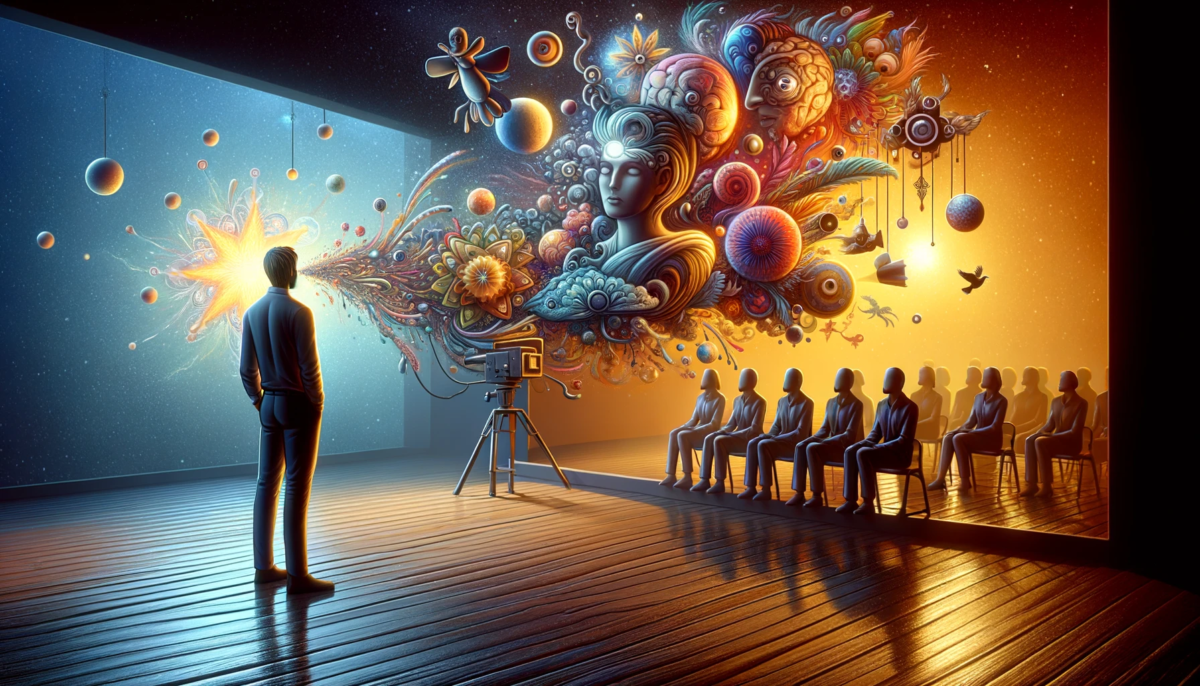
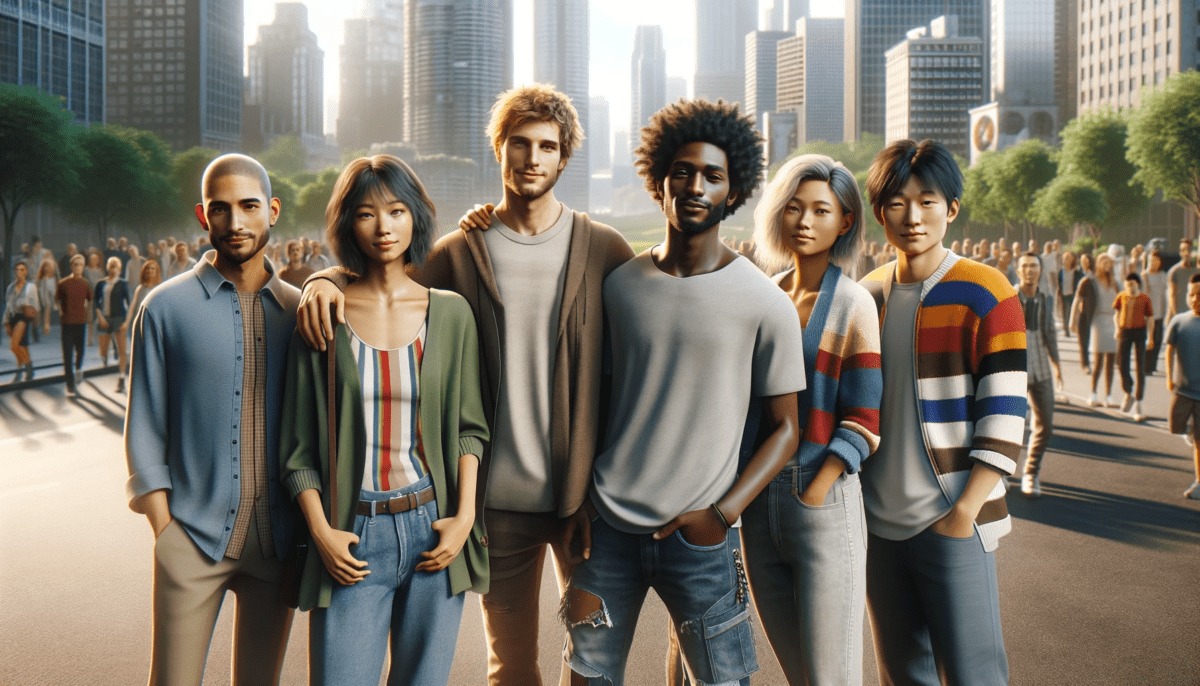
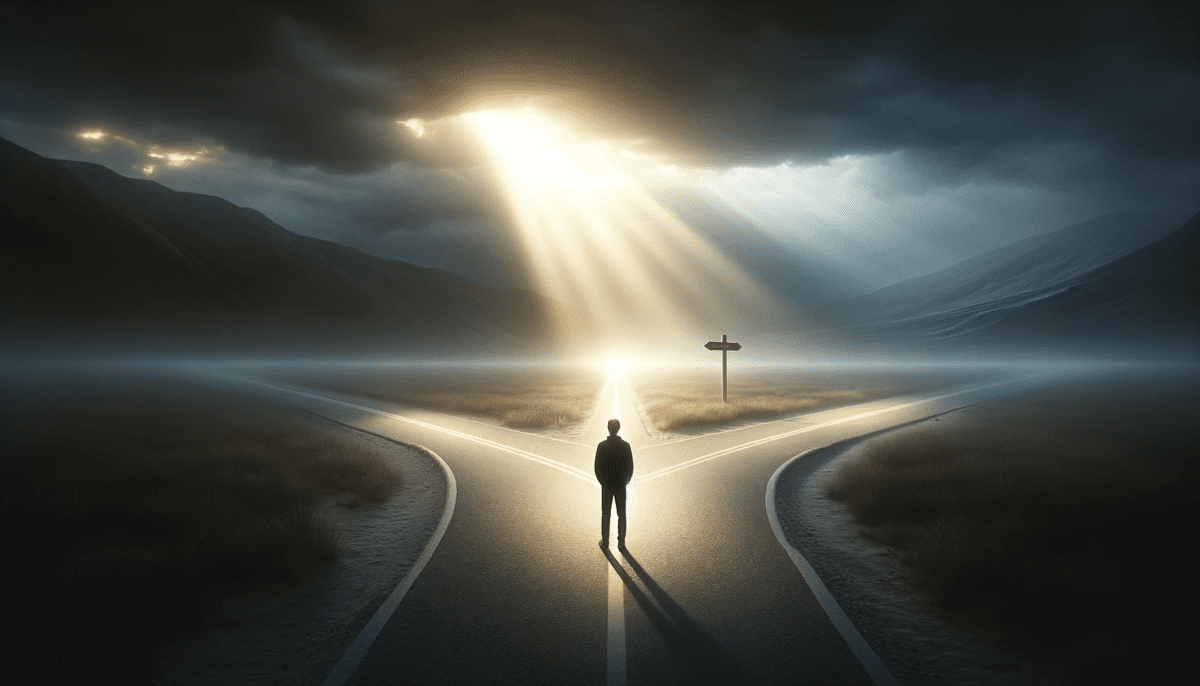
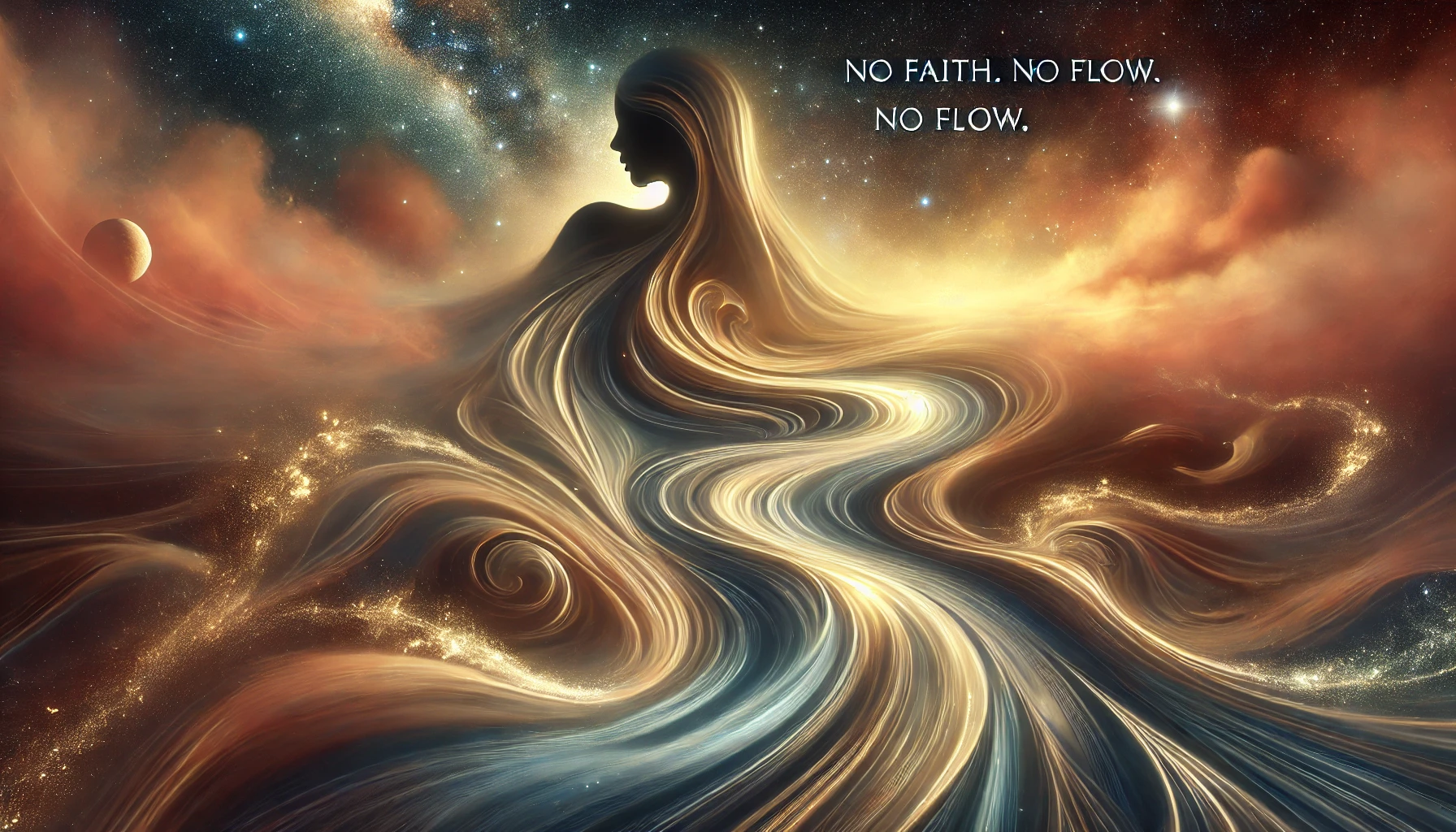
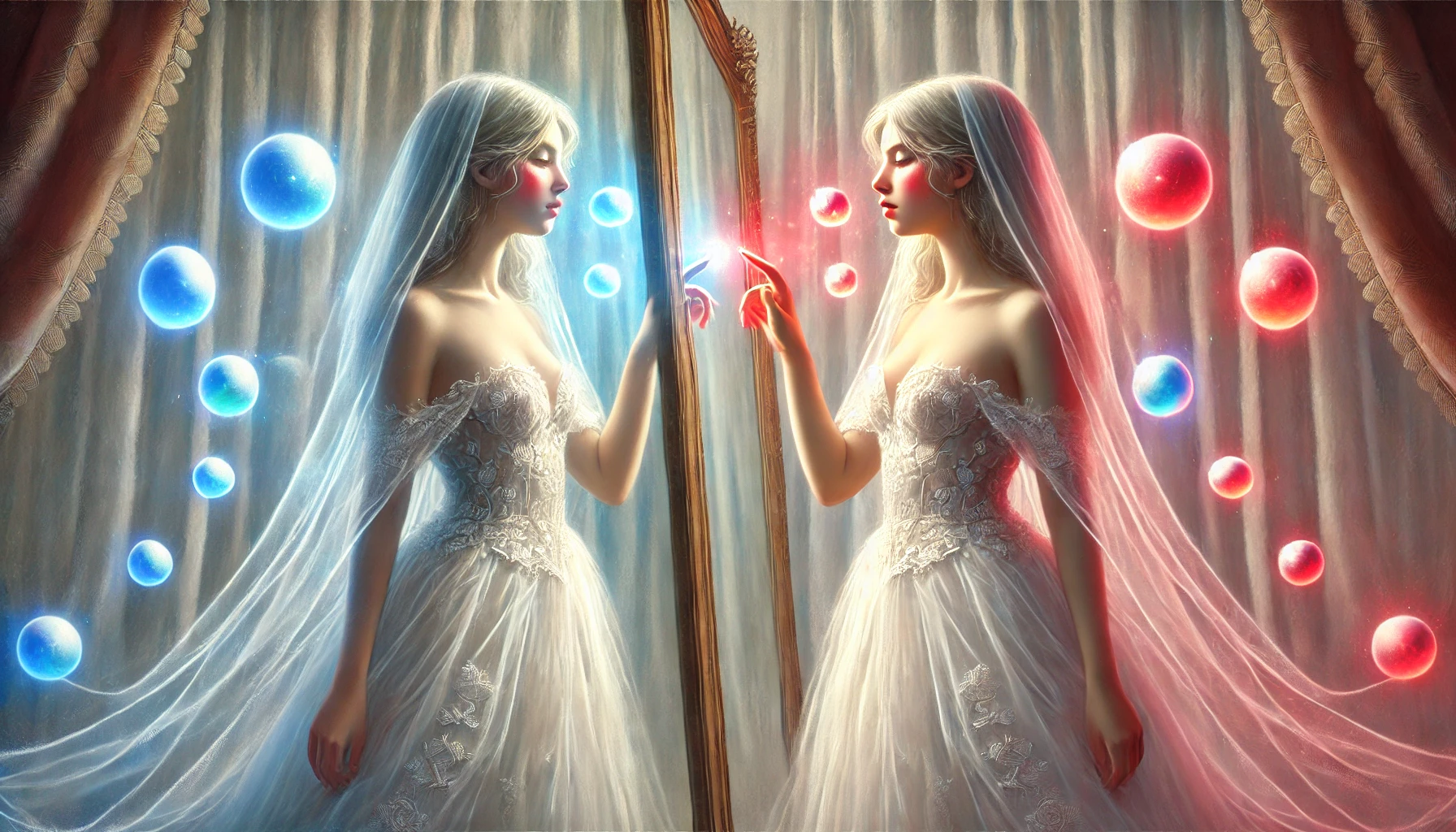
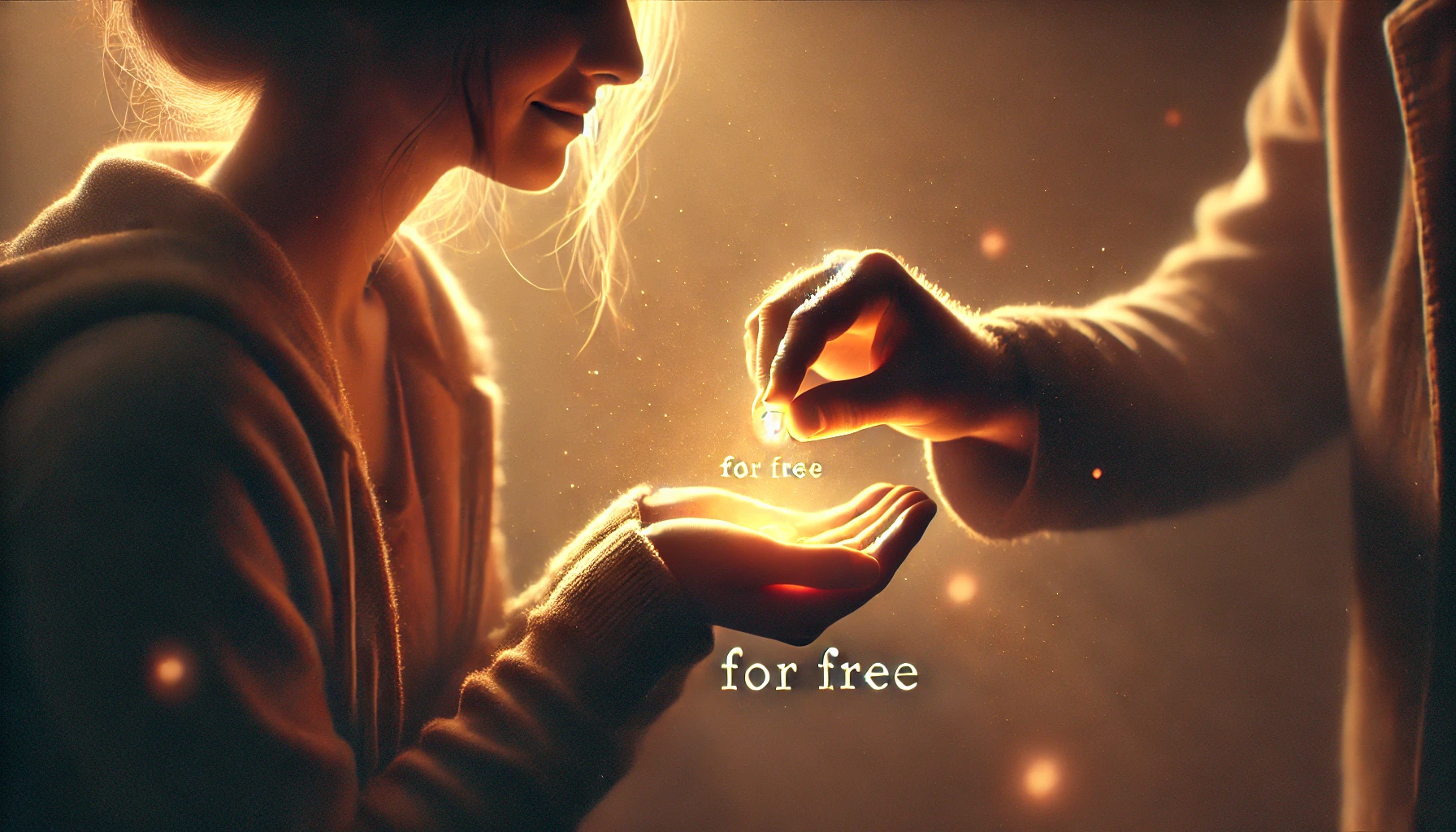
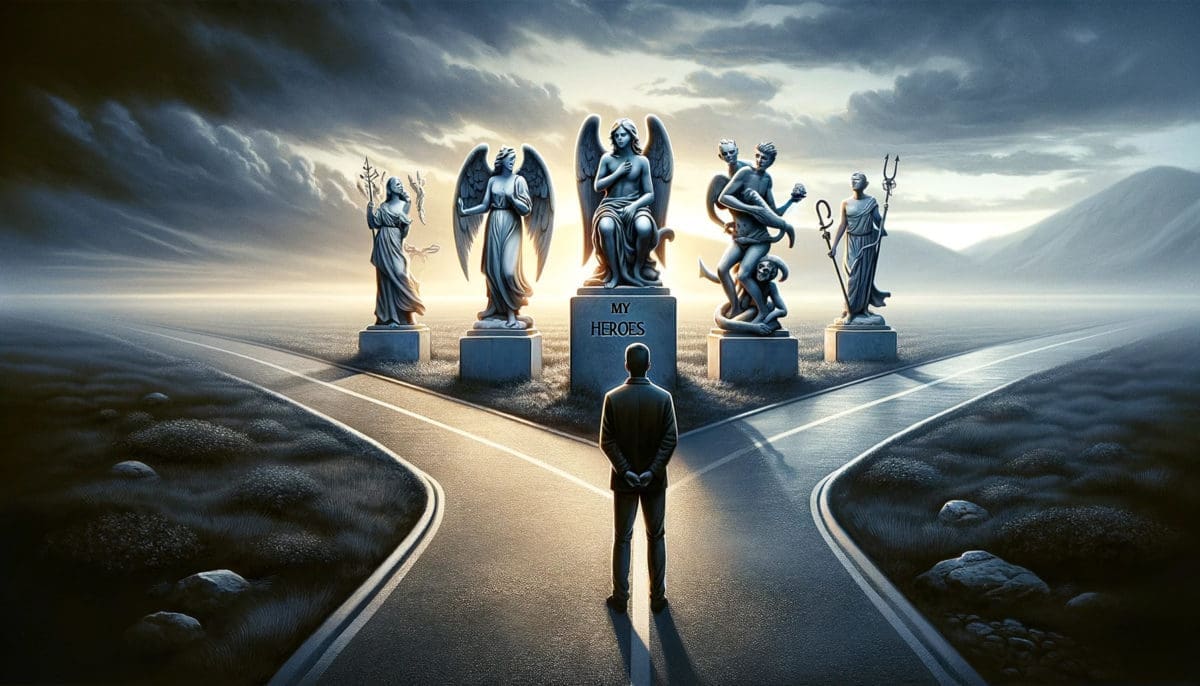

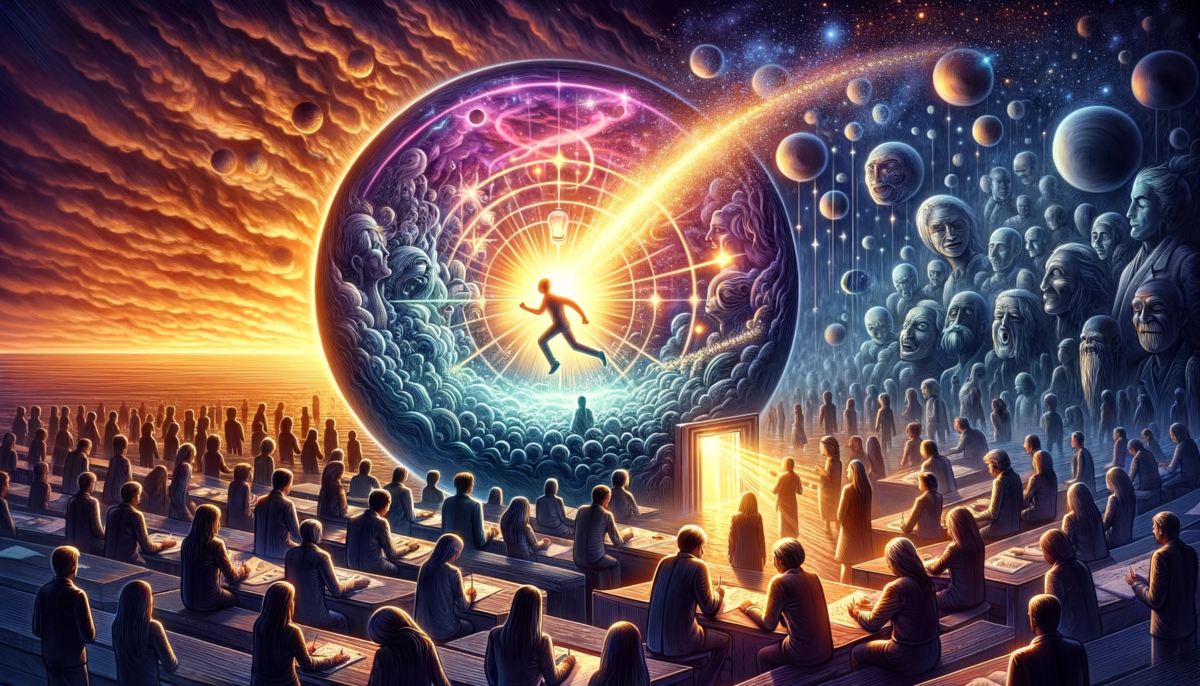
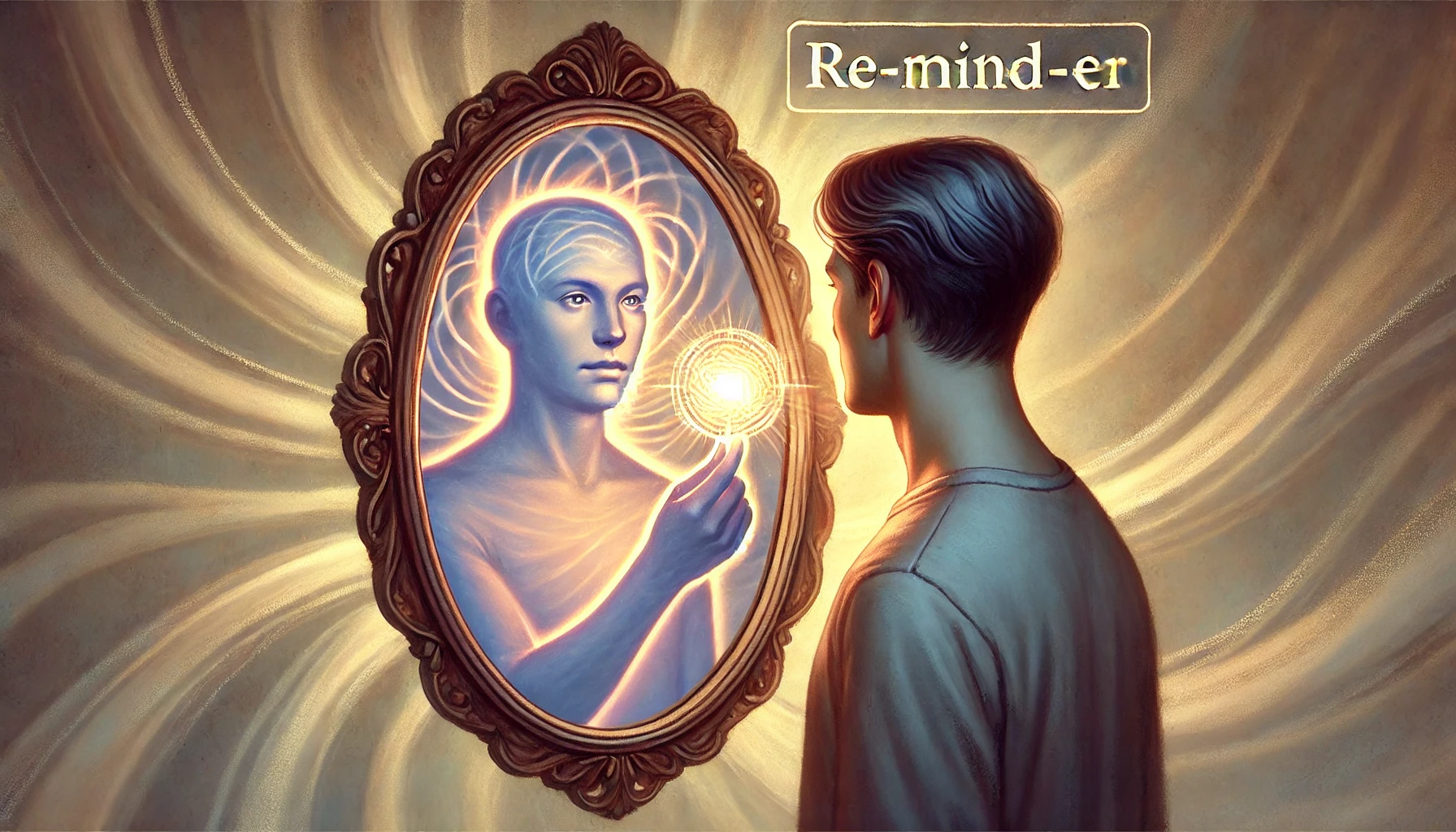
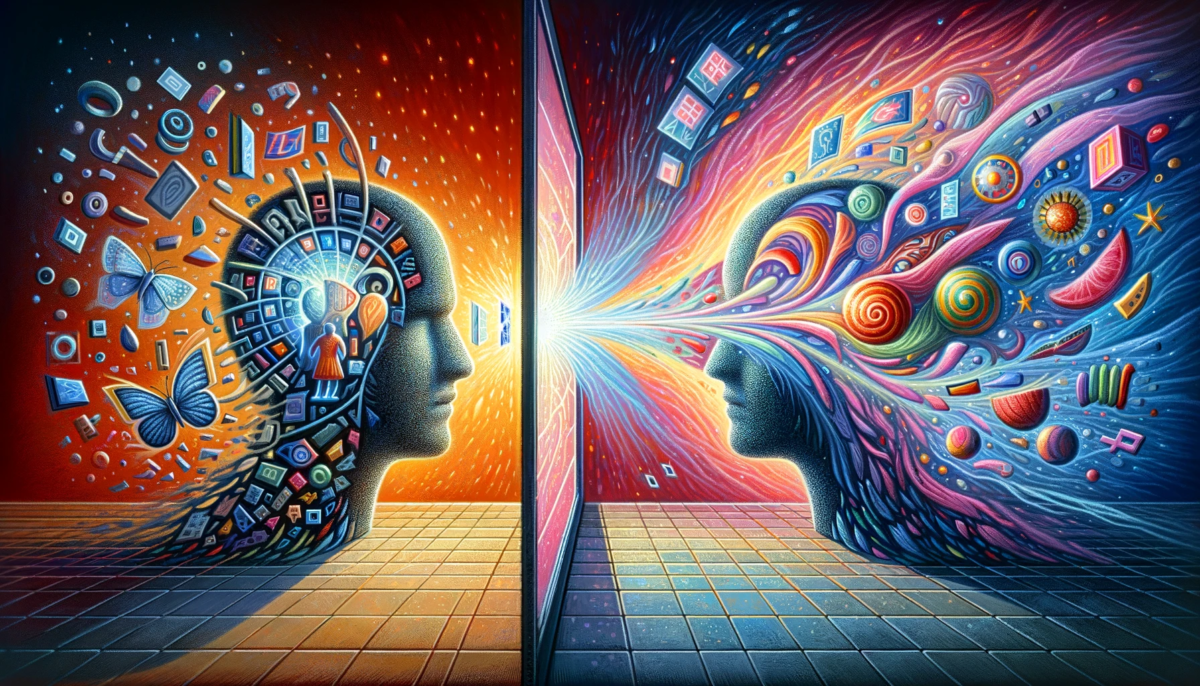
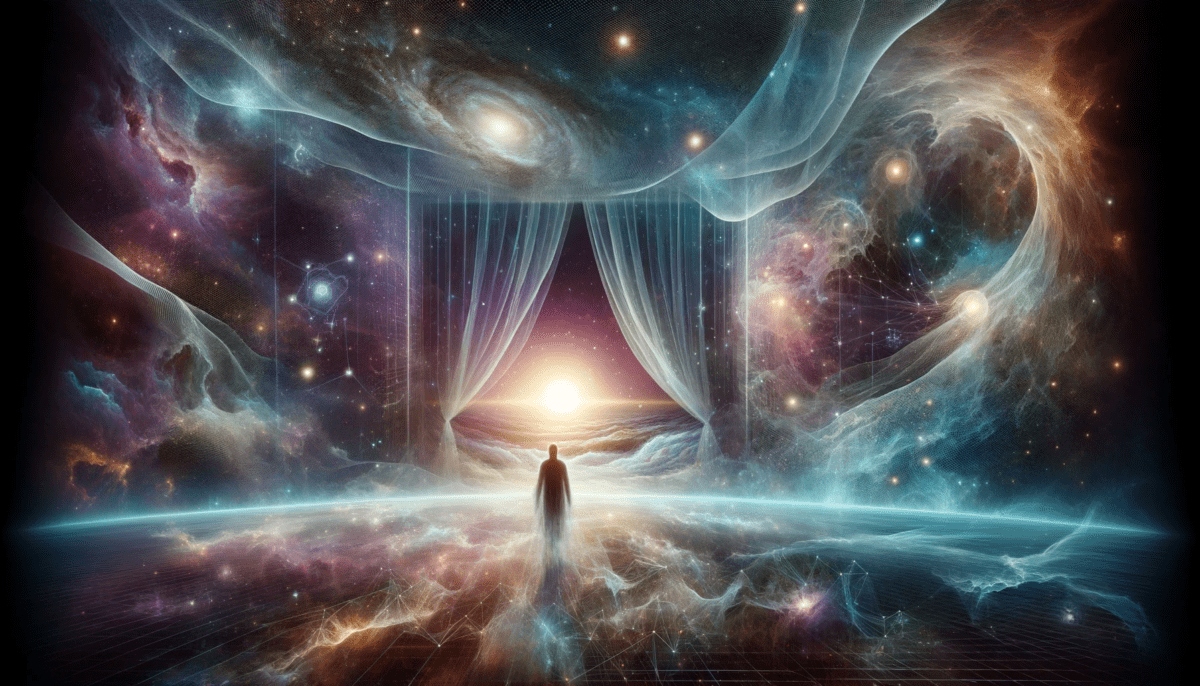
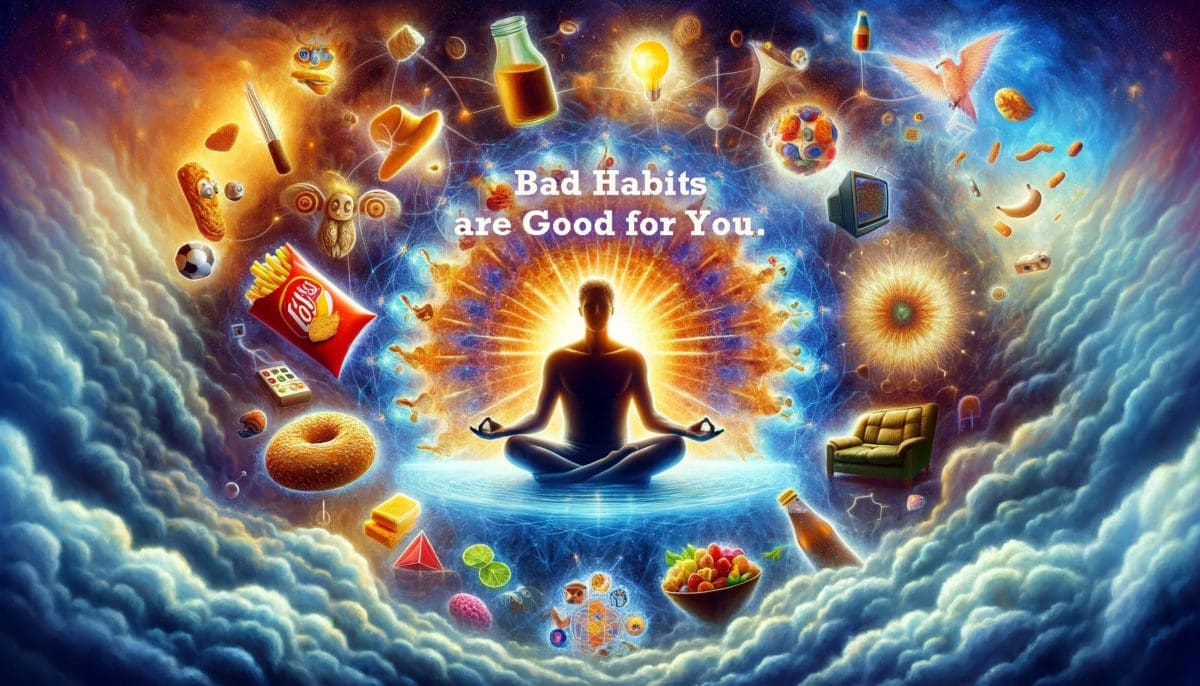

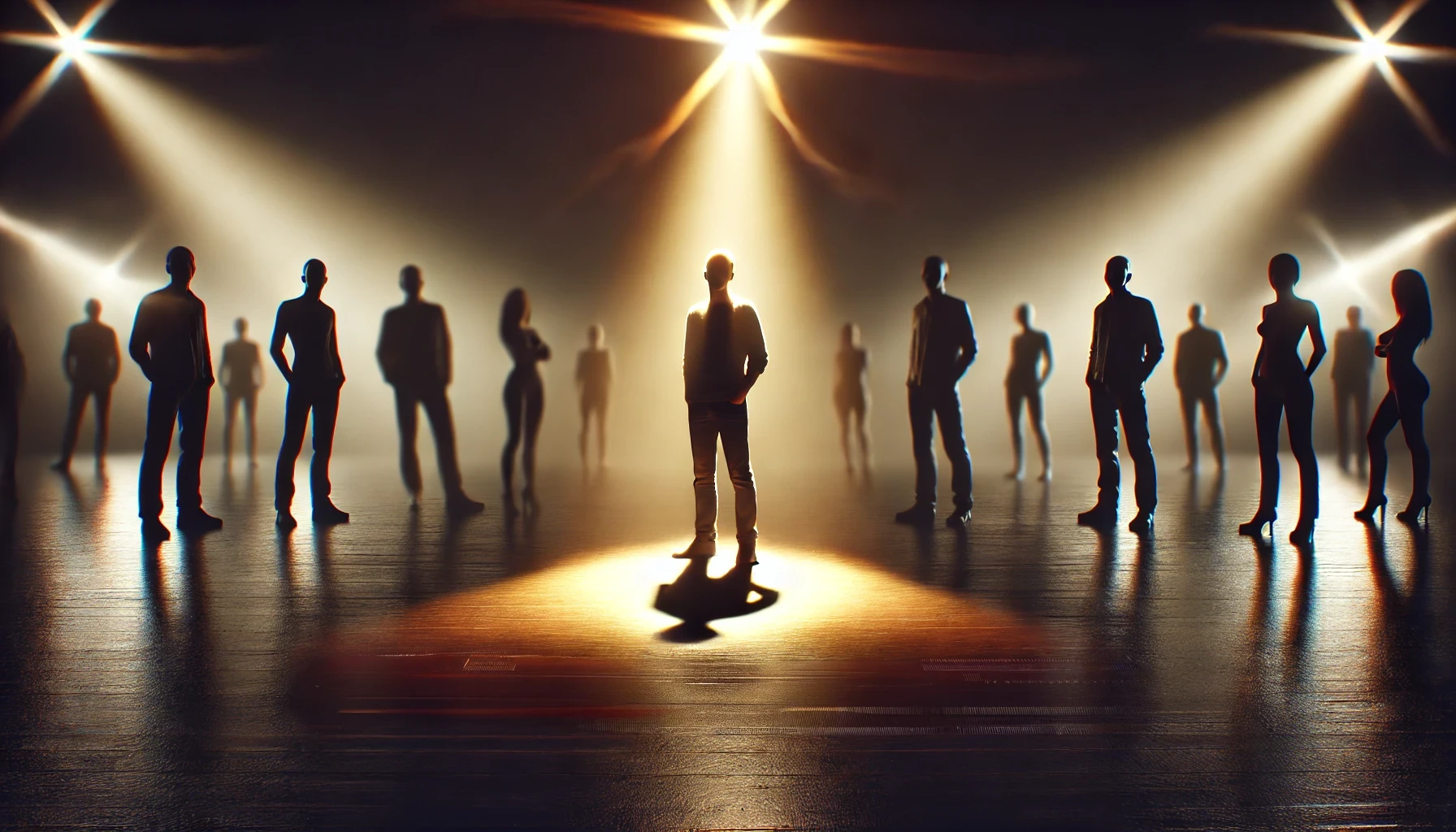

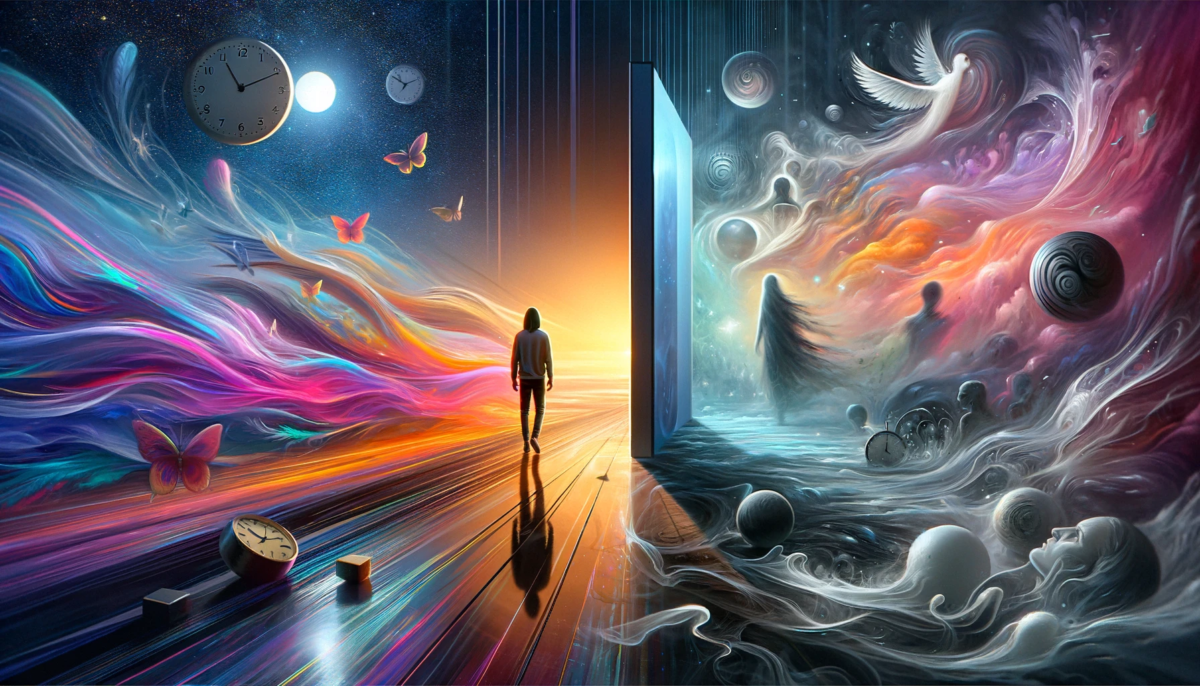
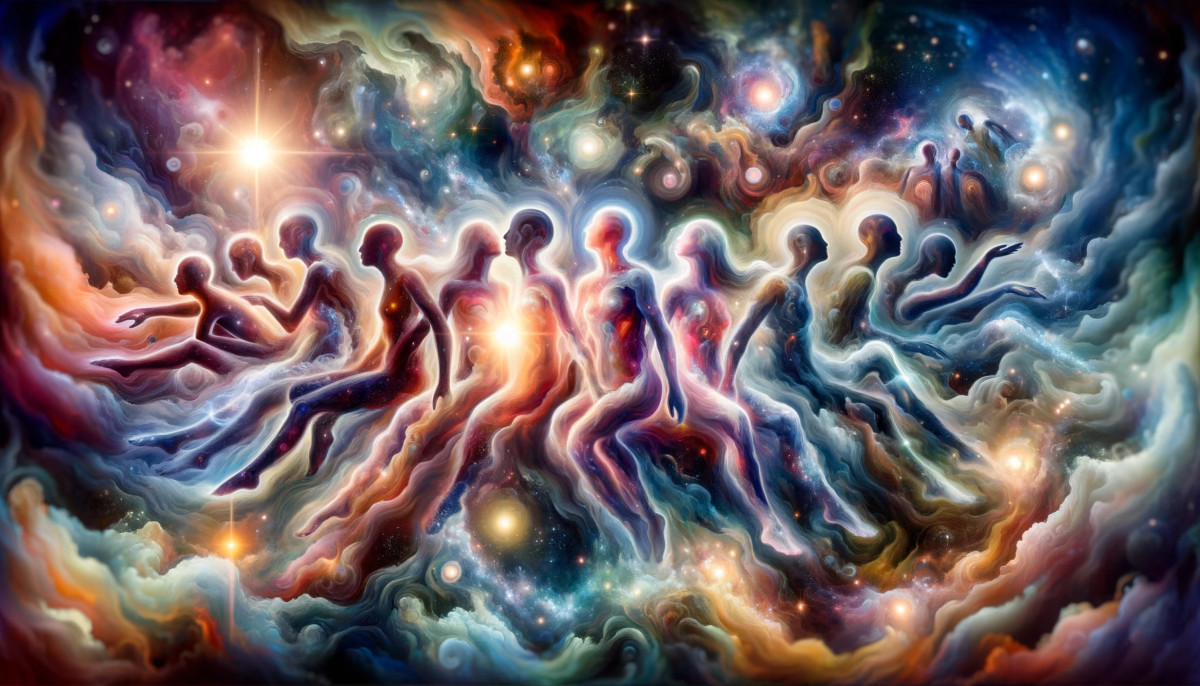
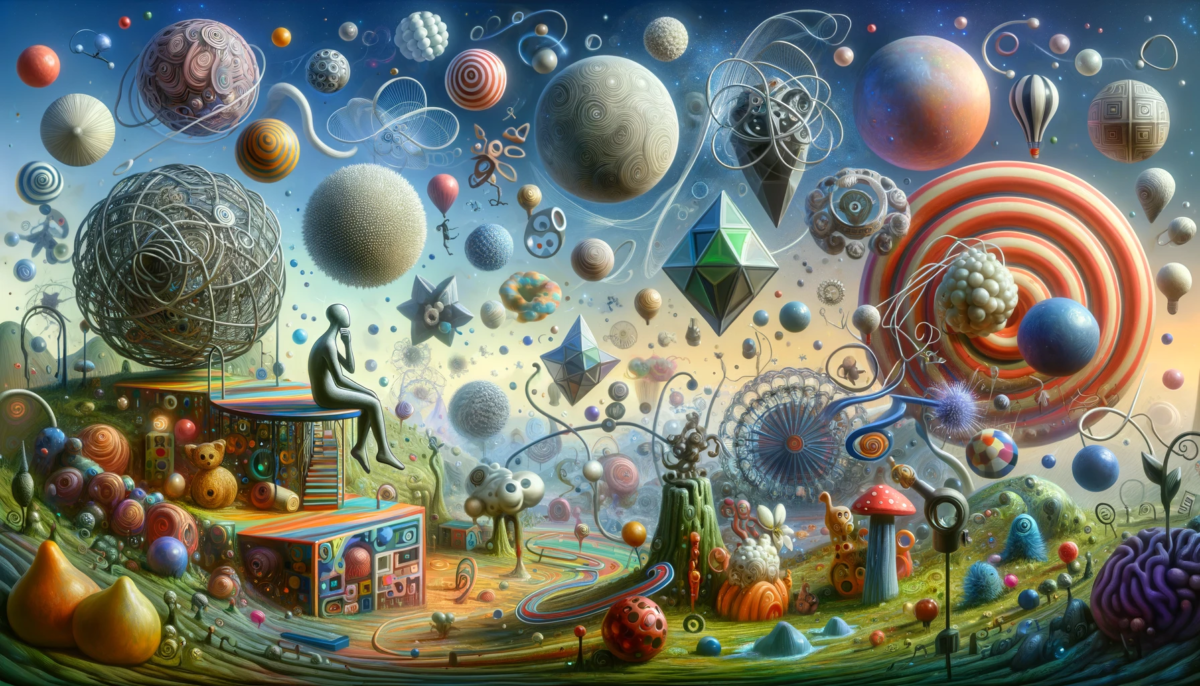
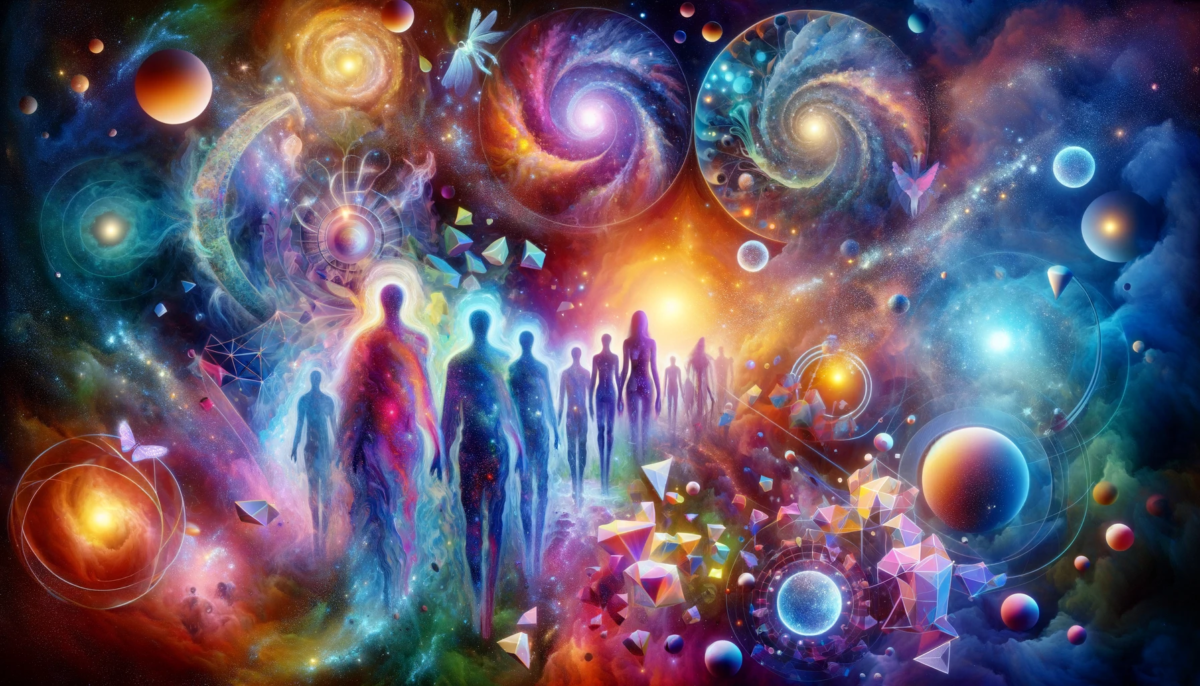

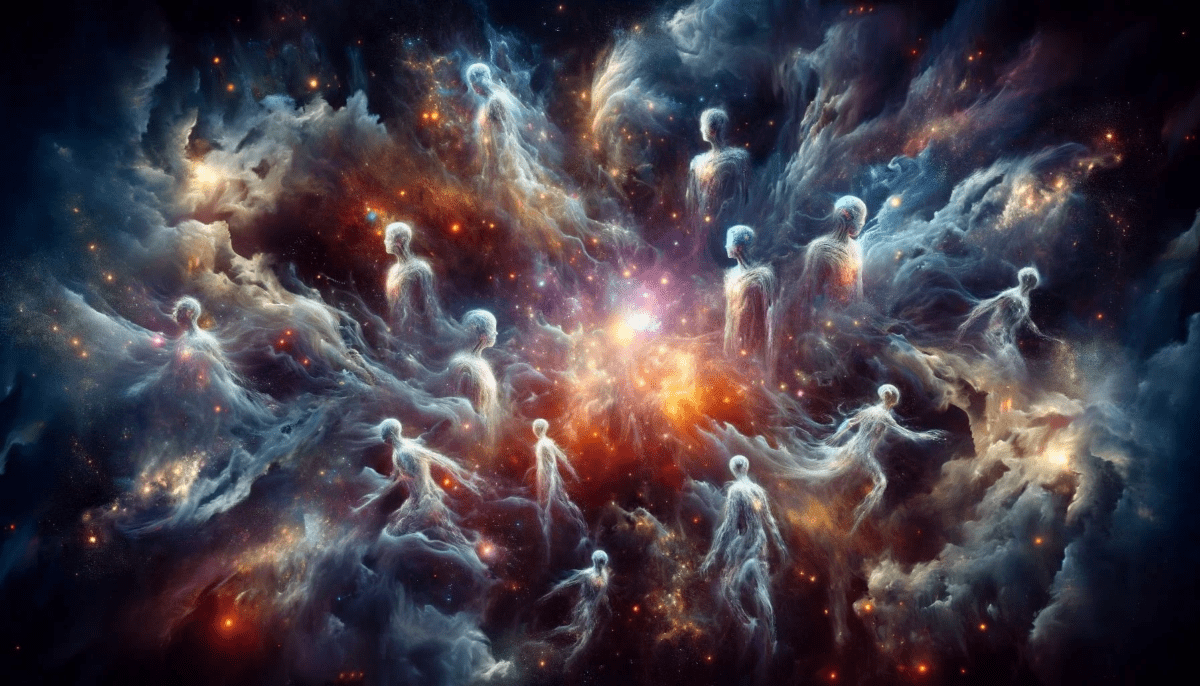
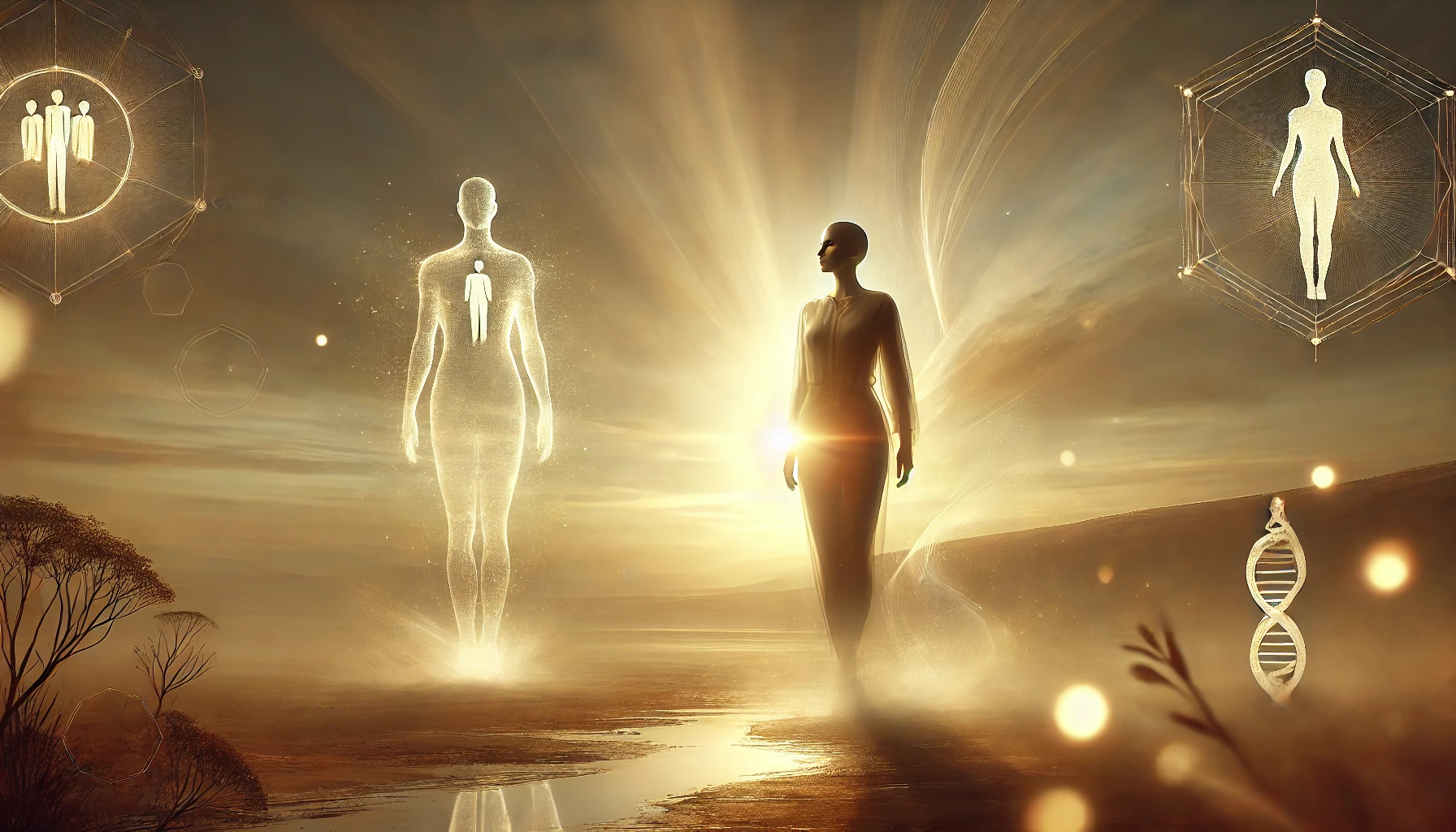

Leave a Reply